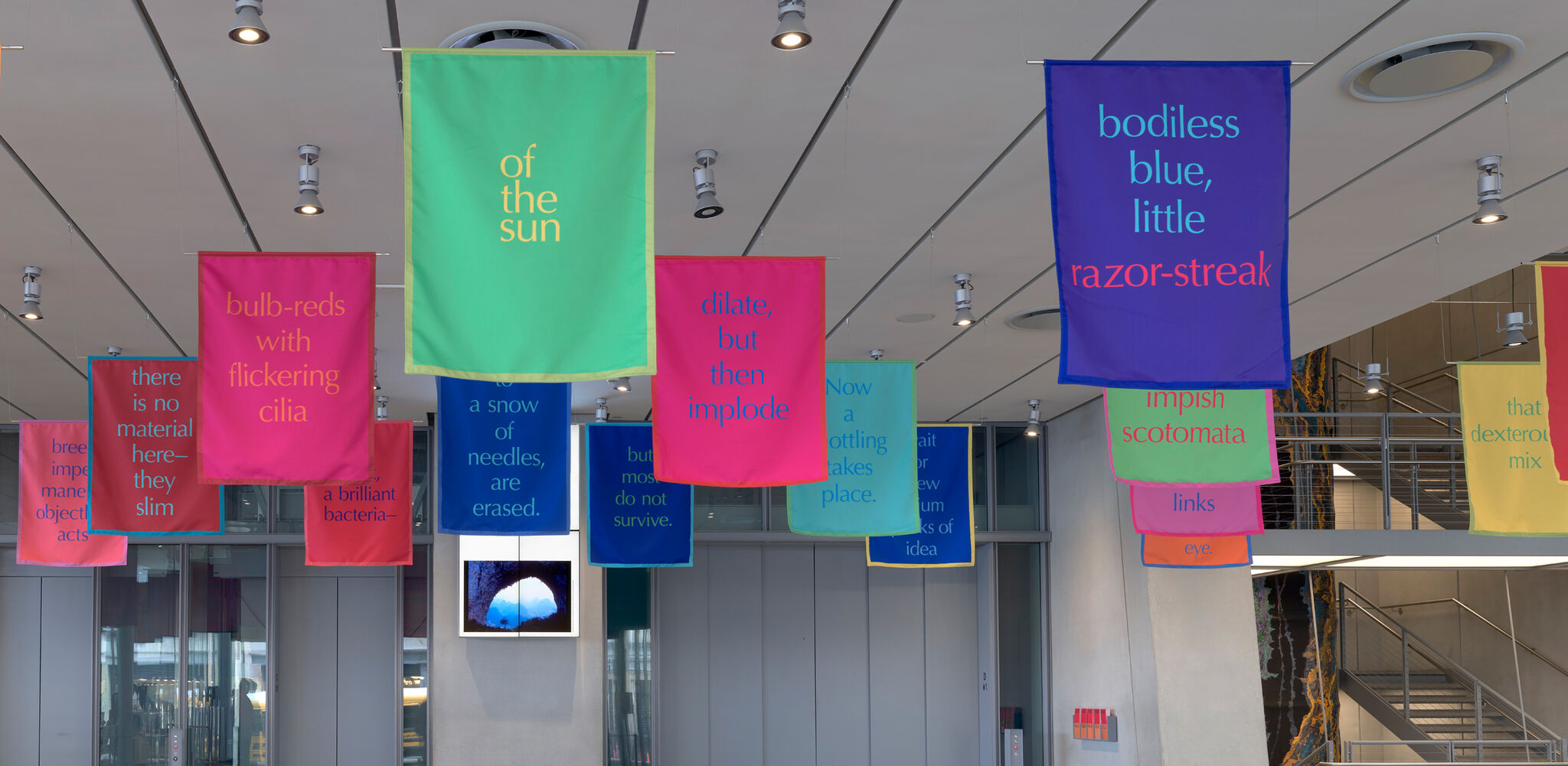Emily Barker, Death by 7865 Paper Cuts and Kitchen
Mar 10, 2022
0:00
Emily Barker, Death by 7865 Paper Cuts and Kitchen
0:00
Narrator: This installation represents six month’s worth of medical records and hospital bills in the life of artist Emily Barker, who experienced a spinal cord injury and uses a wheelchair.
Emily Barker: It’s the printout of the files that I got from the hospital. It shows the medical industrial system and the healthcare industrial system and the pharmaceutical industrial system and how those all operate together when something tragic happens or an accident happens. You’re then faced with millions of dollars of medical bills and debt.
And so the first six months of being hospitalized, I racked up hundreds of thousands of dollars, or I think I hit a million in the first year. I was nineteen years old, there's a date of the start of the paperwork, and It’s almost like an oral history of what my body experienced in those first six months being hospitalized and having surgeries.
Emily Barker: As far as the kitchen piece is concerned, I was examining a blind spot in our culture and in our society and in the world in general of which we have these dimensional standards.
Narrator: The disorienting height of this kitchen replicates the feeling the artist has navigating the built environment in a wheelchair.
Emily Barker: You have a standard or a norm for something that will exclude people that exist outside of this conceived norm or standard. And so the piece itself is questioning the repercussions of building a world for a very limited amount of people in a very specific point in their lives that doesn't consider aging or disability or motherhood or living outside of a very specific body type in the world.
So the height of the kitchen countertop goes to just above the chest level for the average height of a U.S. male. So not a very tall person but a medium-height person in the U.S. And so it’s forcing a perspective that exist in every single space that we encounter, because in every single building and restaurants everywhere are these design standards and norms that really infantilize and leave out and patronize people who do not fit within these preconceived notions of normalcy that are absurd really, that shouldn't exist.
Narrator: Barker talked about their decision to use a transparent material to create the kitchen.
Emily Barker: These are invisible ideas, concepts and scales that we're working with. And so it was more of a metaphorical choice for it to be transparent. And I'm trying to be transparent with the work as much as possible. I’m trying to be transparent and vulnerable without being too intimidating because of the scale, because I don't want these ideas or concepts to cause people to feel guilty or intimidated or defensive. I want them to take this experience with them in a way where the first impression is one of beauty.
What if this happened to you, which it could at any moment? And how do we create systems and a world in which it makes sense for all of us and it doesn't further traumatize and harm us after something bad has already happened? My experience has been one that there are not systems of care in place for anything out of the ordinary happening or outside of the status quo that your Being different and becoming different is severely punished and very expensive. I don't even mean to make work that is so charged, politically. This is just my experience and I couldn't make work about anything else at this point.

